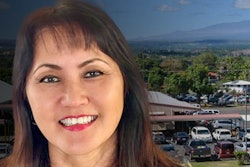
“Students will be able to get this three-year degree for $9,500,” says Dr. Lisa Rhine, the tenth president of Yavapai College, in an interview with Diverse. “And that's no textbook costs and no associated fees.”
Students pursuing the three-year Bachelor of Applied Science in Business (BASB) degree will take 8-week courses offered completely online.
“If a student goes to university, it’s $52,000 for that same four-year degree, and if they stay on campus, it's $115,000 for that four-year degree,” says Rhine. “So, it's a fifth of the cost in tuition alone.”
Rhine began thinking about innovative ways to meet the needs of YC students as a long-time member of the Alliance for Innovation and Transformation (AFIT). AFIT is a network of about 65 community college presidents and CEOs thinking about organizational change in higher education.
Each year, Rhine brings a group of YC colleagues to the AFIT summer institute. “Last year's theme was focused on not only AI, but about building a foresight practice,” says Erika Liodice, executive director of AFIT.
“It's all about having an ear to the ground in your industry and beyond to see what kind of changes you start seeing on the horizon and paying attention to those changes and the possibility for them to become not just one signal, but a movement,” says Liodice.
 Dr. Lisa Rhine
Dr. Lisa Rhine
“It’s an alternative pathway for students,” says Madeleine Green, executive director of The College-in-3 Exchange.
The College-in-3 Exchange is a learning community of over 50 institutions that experiment with three-year degrees. YC is the only community college member of the collective.
“There are many students who know what they want to study and are very eager to get into the workforce,” says Green. “We lose an awful number of students, a shameful number of students, between first and second year, and if they have a clear pathway, this could really help with the problem.”
Yavapai College reviewed student data and found that while many enrolled intending to earn an associate degree and transfer to a four-year university, they often didn’t follow through. This was particularly true for minority and low-income students who were place-bound.
“They were working full time, older students. They had families. They couldn't just pick up and go to a university for two years,” says Rhine. “The three-year degree is going to allow students to get educated, get their degree, get across the graduation stage and get into the workforce a year earlier.”
Rhine is hopeful that YC’s model represents the possibilities that exist for community colleges to innovate and respond to student needs.
“Community colleges are uniquely positioned to have the agility and flexibility to be responsive to the environment and to really think deeply about how we can redo what we offer to meet the needs of today's student,” says Rhine.
Green says this is just one of the many ways colleges can respond to public doubts about higher education.
“This is an exciting and positive statement that colleges can innovate. They can think out of the box,” says Green. “Seat time does not necessarily equal learning. Our institutions have been very serious about quality, learning outcomes, and assessment. We see this as fully equivalent, in terms of learning outcomes, to a four-year degree.”
YC also became the first rural community college in Arizona to offer a baccalaureate degree, a Bachelor of Science in Business program, in Fall 2023. They have since added a Bachelor of Science in Nursing degree and a Bachelor of Science in Computer Science.
“Yavapai has created a model that could inspire institutions across the country to rethink how they're delivering some of their programming to students, especially the bachelor's degree,” says Liodice.









